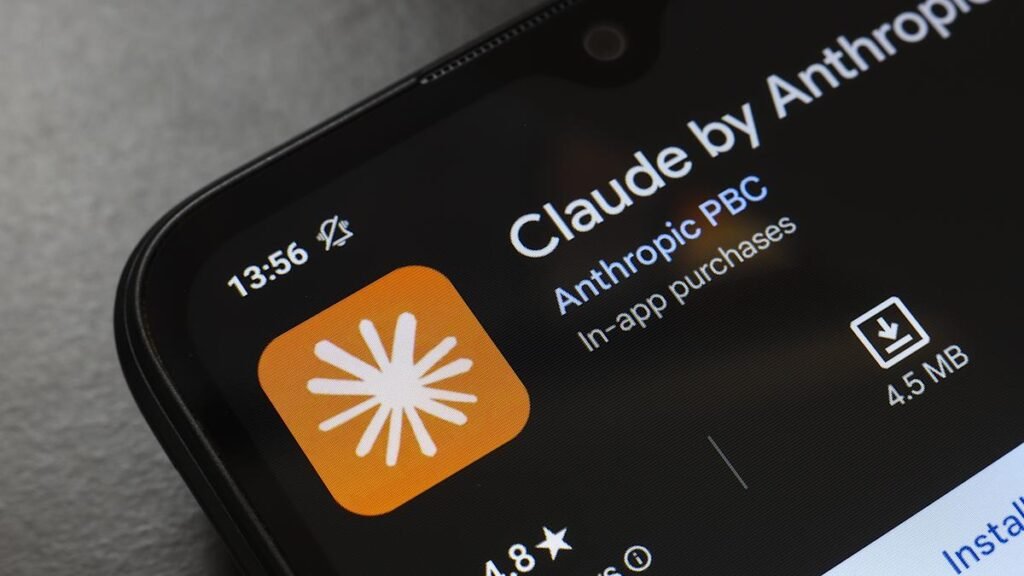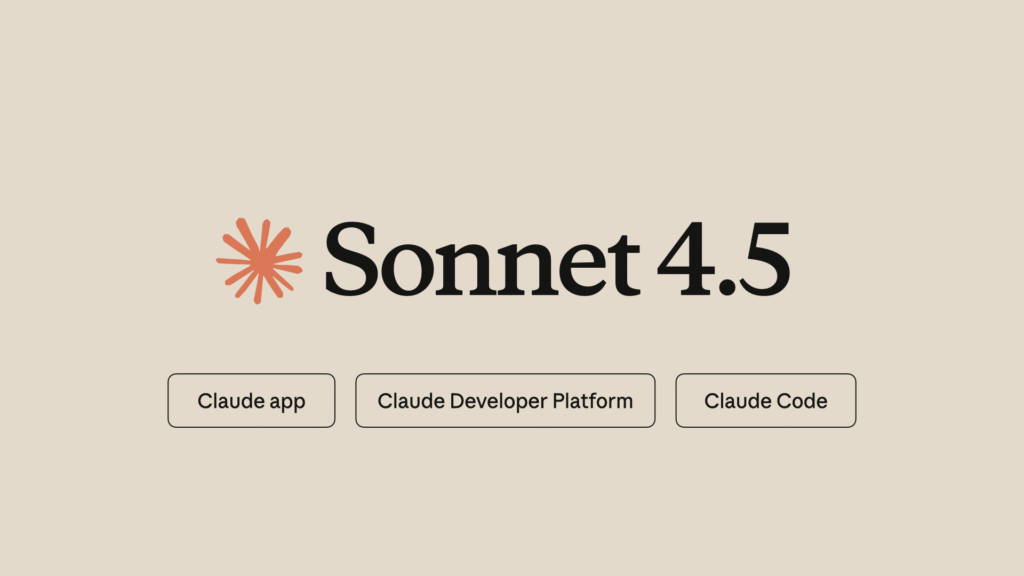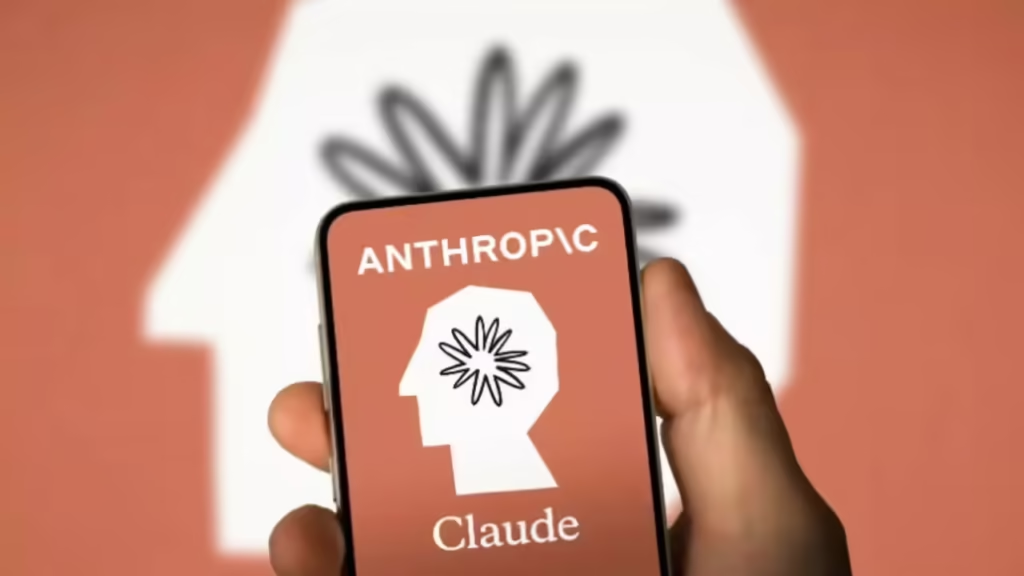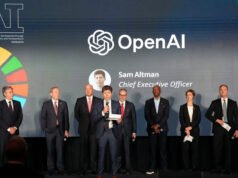Artificial intelligence company Anthropic has officially launched Claude Sonnet 4.5, its latest large language model. The update, which comes with new coding powers, an agent SDK, and major app improvements, is being positioned as the firm’s most ambitious release yet.
For months, developers and AI enthusiasts had been waiting for Anthropic’s next move in the race against competitors like OpenAI and Google DeepMind. Now, with Claude Sonnet 4.5, the company says it has delivered a model that is faster, sharper, and better at handling long, complex tasks.
Alex Albert, Anthropic’s Head of Developer Relations, described the launch as a turning point:
“Claude Sonnet 4.5 is not just another model. It is the best coding model in the world and the strongest foundation for building complex AI agents.”
According to Albert, the model has scored highly on respected benchmarks such as SWE-bench Verified and OSWorld, proving its ability to solve advanced software engineering tasks. He also highlighted its improved “focus mode,” which allows the model to stay accurate and efficient for more than 30 hours on demanding, multi-step problems.

Table of Contents
A Deeper Look at Claude Sonnet 4.5
At the heart of this update is a model designed for developers. Anthropic has strengthened Claude’s coding abilities, making it a stronger assistant for writing, debugging, and optimising code. The company claims it now outperforms rivals in software engineering tests, which could make it an attractive option for businesses seeking AI support in building applications.
One standout feature is focus mode. Many AI tools struggle when given long, technical tasks over extended periods, but Sonnet 4.5 is designed to maintain reliability during such work. This is particularly important for teams running large projects, where consistency matters more than speed alone.
Alongside coding, Sonnet 4.5 has also improved in reasoning, mathematics, and problem-solving, areas that are crucial for developers building real-world products.

New Tools: Claude Agent SDK and App Upgrades
Anthropic is not stopping at the model itself. With this release, the company has rolled out the Claude Agent SDK — a software development kit that allows programmers to build their own AI agents using Claude as the foundation.
Nicole Sim, Product Marketing Lead at Anthropic, emphasised the significance of the release:
“For the first time, developers now have access to the same SDK that powers our internal Claude tools. This means anyone can build agentic systems, not just Anthropic.”
The SDK comes with frameworks and functions that make it easier for developers to design, test, and deploy AI agents. In practice, this could power everything from customer service bots to financial analysis tools, or even educational platforms tailored to local communities.
Beyond the SDK, Anthropic has also refreshed its suite of apps and APIs:
- Claude Code now features checkpoints, a smoother terminal interface, and an official Visual Studio Code extension.
- Claude API has new memory and context-editing tools to help with long-running agents.
- Claude apps can now generate files like spreadsheets, slides, and documents directly within conversations.
- A Claude for Chrome extension is rolling out to premium users, enabling Claude to work directly in the browser.
Together, these upgrades are meant to reduce friction for developers and make Claude a central tool in everyday workflows.
Why It Matters: Nigeria, Africa, and the Global AI Race
Although this is a global launch, the ripple effects could be particularly meaningful for Africa’s fast-growing tech ecosystem. Nigeria, often called the Silicon Valley of Africa, has a young developer population eager to experiment with generative AI.
For Nigerian developers, Claude Sonnet 4.5 and the Agent SDK could open doors to:
- Building local solutions: Developers can design agents that understand Pidgin English, Nigerian codebases, and local business realities.
- Boosting education: Schools and edtech startups can use Claude’s coding strengths to create affordable learning platforms.
- Driving fintech innovation: With Nigeria being a fintech hub, AI-powered agents could help with fraud detection, customer service, or personalised financial advice.
- Government and civic services: Smart agents could support service delivery, data analysis, and even voter education.
The question will be accessibility. Pricing, infrastructure support, and localisation will determine how quickly Nigerian and African developers adopt the technology.
Globally, Anthropic is clearly positioning itself as a serious competitor to OpenAI’s GPT-4.5 Turbo and Google’s Gemini. While the benchmarks show strong results, real-world adoption will depend on whether developers find Claude easy to integrate and reliable in production.

The Bigger Picture
With Claude Sonnet 4.5, Anthropic is moving beyond just releasing models into building an ecosystem. By giving developers tools like the Agent SDK, stronger APIs, and productivity app upgrades, it is betting that adoption will spread faster and deeper.
For Nigerian developers, startups, and tech leaders, this represents both an opportunity and a challenge. The opportunity lies in leveraging cutting-edge AI to build unique, locally relevant products. The challenge will be ensuring access, affordability, and performance in environments that may differ from those in Silicon Valley.
What is clear, however, is that the AI race is no longer just about raw power — it is about who can equip developers with the right tools to build the next generation of applications. With Claude Sonnet 4.5, Anthropic has signalled that it intends to be right in the centre of that contest.
Join Our Social Media Channels:
WhatsApp: NaijaEyes
Facebook: NaijaEyes
Twitter: NaijaEyes
Instagram: NaijaEyes
TikTok: NaijaEyes





